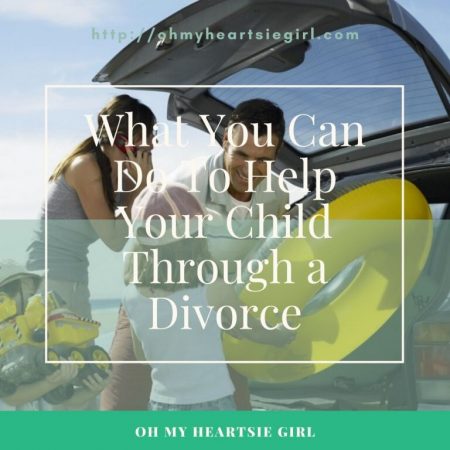 Helping Your Child Through a Divorce
Helping Your Child Through a Divorce
If parting ways is difficult enough for both parents, imagine for a child who probably thought mom and dad’s bond was unbreakable. Separation isn’t an easy process for anyone, but the right approach helps all involved to go through the situation without friction.
In the US, around 40 percent of couples go through a divorce, making it a common experience—not any less difficult, though. However peaceful and no-fault a breakup may be, the couple’s children will show some form of discontent. Whether that’s sadness, anxiety, or irritability, the parents should expect negative reactions.
The fact is, these reactions are short-lived. But while times are tough, there’s a lot you can do to help your child.
Break the News Together
It doesn’t matter if the relationship ended in good terms or not, telling a child about the divorce should be a mutual decision. Both parents should agree to set a date and time to talk about the separation. This shouldn’t be a time to blame or point fingers at each other, as the child will need more support than ever.
While older children might have a better idea of what’s been going on around the house, the news will likely come as a shock for young children, especially if the parents have been keeping the arguments private. In certain ages, the minds of children won’t understand why mom and dad won’t be together and might jump to the conclusion that they don’t love each other anymore. As a parent, it’s your job to counter that.
You can start by telling younger children that mom and dad won’t be living in the same house. Dad (or mom) will live somewhere else, but you’ll both still love your child unconditionally. Reassure your child that she will get to see both of you and that none of you will “go away”. Even as the age goes up, never forget to tell your child that the situation isn’t their fault.
Keep Fights Out of Earshot
In the case of an unhealthy relationship, conflict is expected. However, what’s between parents should stay between parents and away from the children. That has to do with the potential mental health issues fighting in front of your children can cause. Seeing dad being bad to mom (or vice-versa) will not only make a child scared to be treated that way, but it can give him a bad example of how relationships should work. Also, arguing about who gets custody can confuse a child and make them think someone’s going away forever, which isn’t the case.
Therefore, parents should keep child custody and family law matters between themselves and a good attorney, and only talk to children about matters they understand, such as answering questions about when they’ll be able to see the other parent.
Of course, you’ll need a good family lawyer to settle your divorce, someone as experienced as these family lawyers in Brisbane. Choosing someone with years of experience in family legal services will help you move on from this difficult time without conflicts.
Offer Emotional and Psychological Support
Encourage your child to talk about their fears, and listen to them without judgment. Answer all kinds of questions she might have, as difficult as they might be to answer. If she has any signs of child anxiety, it might help to send her to a therapist who specializes in Cognitive Behavioral Therapy (CBT). With the assistance of a professional, your child will change their thought pattern and positively accept the situation as it is.
Is your family religious? If so, the VBS program teaches kids about the story of God and his forever love. Children, especially younger, won’t have to try and read the whole Bible to understand that they’re always loved and protected from above.

The sooner your child understands what’s going on, the better—especially if she knows it’s not her fault and there’s no reason for concern. Constantly remind her that mom and dad’s love will remain regardless of what happens, and they’ll never feel like there’s a missing piece in the family.
[…]
5 Ways to Brighten Your Spouse’s Day
How Does the Judge Resolve Child Custody Disputes?
How To Heal A Breaking Marriage With Personalized Couple Therapy?
7 Tips for Working Moms to Juggle Kids and Career
This post may contain affiliate links and I might receive compensation if you make a purchase after clicking on a link.

 Child custody is by far one of the most difficult issues to resolve in a divorce case. Both parents usually want custody of the kids, and it can be a huge battle to see who wins. It’s important to always keep the child’s best interests in mind when trying to resolve child custody disputes.
Child custody is by far one of the most difficult issues to resolve in a divorce case. Both parents usually want custody of the kids, and it can be a huge battle to see who wins. It’s important to always keep the child’s best interests in mind when trying to resolve child custody disputes. 